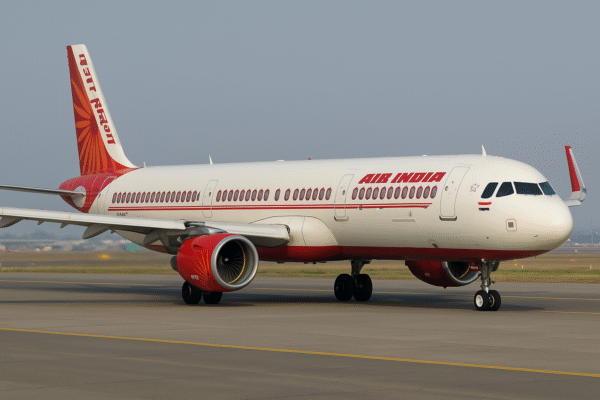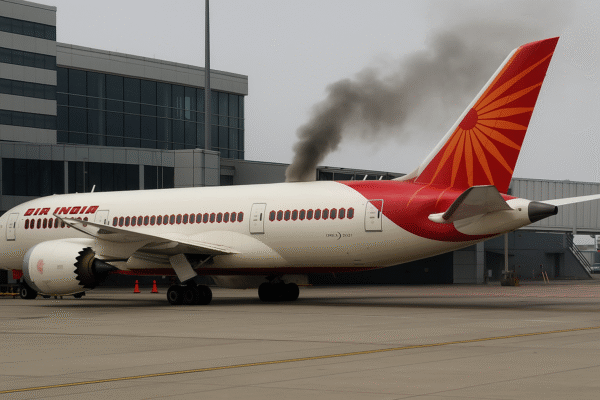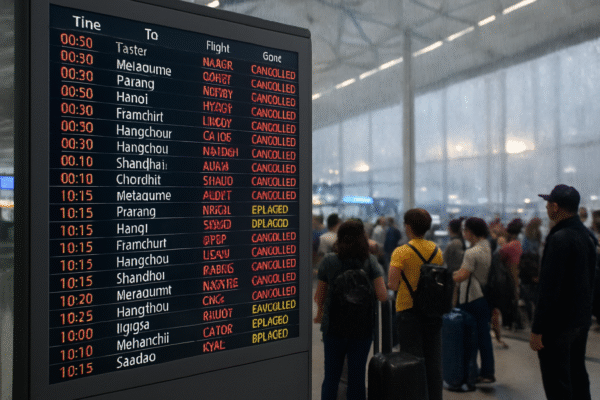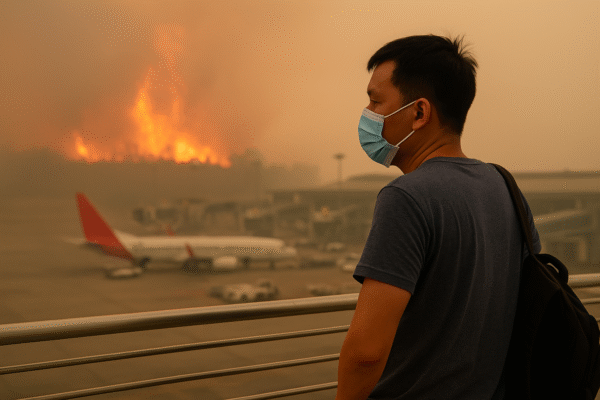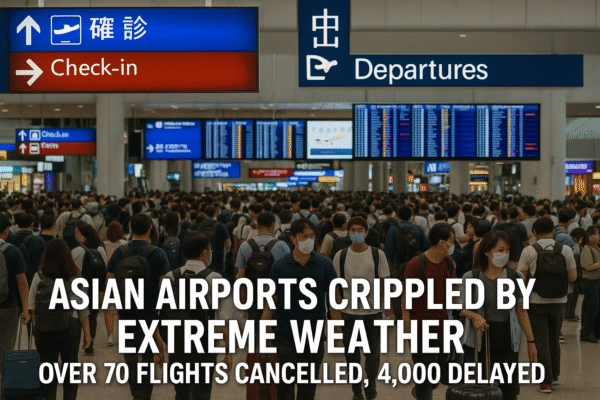Severe Weather Grounds 15 WestJet Encore Flights Across Western Canada, Disrupting New Regional Routes
A powerful summer storm system swept through Western Canada on Tuesday, forcing WestJet Encore to cancel 15 regional flights across several provinces. The cancellations primarily affected new short-haul connections linking Calgary, Regina, Fort McMurray, Winnipeg, Kamloops, and Saskatoon. Adverse weather conditions—including high winds, lightning, and reduced visibility—prompted WestJet to suspend operations of its Dash 8 Q400 fleet for safety reasons, significantly disrupting regional air travel.
Calgary: Alberta’s Hub Takes the Brunt
Calgary International Airport (CYYC) was the hardest hit, recording 10 flight cancellations (6 outbound and 4 inbound). The cancellations affected key routes in WestJet Encore’s recently expanded network, including:
- Departures: Regina, Fort McMurray (two flights), Kamloops, Winnipeg
- Arrivals: Regina, Fort McMurray (two flights), Kamloops
According to Environment and Climate Change Canada, Calgary experienced low ceiling clouds, lightning activity, and gusty winds exceeding 70 km/h, conditions deemed unsafe for turboprop operations. The grounding of multiple aircraft also caused gate congestion and tarmac delays.
Regina: Central Saskatchewan Feels the Pinch
Regina International Airport (CYQR) faced five total cancellations, including three departures and two arrivals. Flights between Regina and both Calgary and Winnipeg were suspended, causing travel disruptions across Saskatchewan.
Regina’s relatively smaller daily schedule meant the cancellations had a proportionally greater impact, particularly affecting business travelers and passengers with connections to major hubs like Calgary and Winnipeg.
Fort McMurray: Energy Sector Travel Disrupted
In Fort McMurray (CYMM), a strategic destination for Alberta’s oil and gas workforce, all scheduled WestJet Encore flights were cancelled (2 outbound and 2 inbound). Flights between Fort McMurray and Calgary—critical for fly-in/fly-out shift rotations—were suspended, delaying workforce mobility.
The Regional Municipality of Wood Buffalo, which oversees Fort McMurray, issued weather advisories warning of lightning strikes and reduced visibility affecting aviation safety.
Kamloops and Winnipeg: Ripple Effects Spread
Kamloops Airport (CYKA) in British Columbia saw two cancellations as weather disturbances stretched westward. Flights between Calgary and Kamloops were grounded, affecting regional connectivity in the southern interior of B.C., where WestJet had recently launched service expansions.
In Winnipeg (CYWG), Manitoba’s capital, two flights were cancelled—one to Regina and another to Saskatoon—as the storm moved east. Although Winnipeg itself was not the storm’s epicenter, the city experienced downstream disruptions due to aircraft and crew repositioning challenges.
Saskatoon: Minimal But Not Immune
Saskatoon John G. Diefenbaker International Airport (CYXE) recorded a single flight cancellation—an inbound arrival from Winnipeg. This cancellation reflected broader network-wide knock-on effects rather than local weather conditions.
Airline Response and Passenger Impact
WestJet Encore issued a statement confirming the cancellations were “purely precautionary” and implemented in line with standard safety procedures. The airline prioritized rebooking and customer communication through mobile apps, email alerts, and in-terminal notifications.
In total, 15 of 39 regional flights scheduled for Tuesday were cancelled—approximately 38% of the airline’s planned daily short-haul operations. The cancellations mainly affected leisure travelers, small business commuters, and essential workers in Western Canada.
Meteorological Context
According to Environment Canada, the storm system responsible for the disruption developed over the Canadian Rockies, intensifying rapidly due to upper-atmosphere instability and warm surface temperatures. It brought:
- Winds exceeding 70 km/h
- Cloud ceilings below 500 feet
- Lightning activity impacting multiple provinces
Such conditions make operations of turboprop aircraft like the Dash 8 Q400 particularly hazardous, as they rely heavily on visibility and low-level airspace stability.
Operational Vulnerability in Regional Aviation
This weather event underscores the fragility of regional air networks in Canada, especially during the summer storm season. WestJet Encore’s new route expansion strategy across Western Canada, while promising for regional mobility, remains sensitive to sudden weather events that can paralyze operations across multiple nodes simultaneously.
Transportation analysts from the Canadian Transportation Agency (CTA) have previously warned that increasing climate variability could threaten aviation resilience, particularly for regional carriers with less flexible scheduling and fewer backup aircraft.
Looking Ahead: Climate Resilience in Canadian Aviation
As climate change amplifies the frequency of severe weather events across North America, Canadian airlines may need to invest in predictive weather modeling, adjust seasonal route planning, and strengthen regional airport partnerships for contingency planning.
In the short term, WestJet Encore is likely to maintain its focus on safety-first operations and flexible customer support. However, the aviation industry as a whole must prepare for a future where weather disruptions are no longer rare exceptions—but expected operational challenges.
For more travel news like this, keep reading Global Travel Wire




